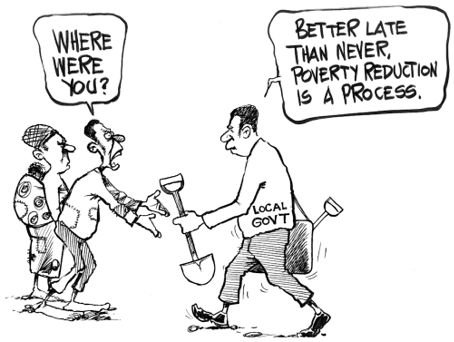 Alvin Toffler in his book mentions
five systematic effects that the Industrial revolution or the Second wave
created. One of them is the system of Centralisation. He mentions about the system of
‘centralising’ power production that is depended on fossil fuels and
non-renewable sources. I would like to the take the
alternative view if we were to remedy the system. Instead of having a
centralized power production we could have the ‘decentralised’ power
production. This also reduces and takes away the issue of massive grid system
and power distribution problem.
Alvin Toffler in his book mentions
five systematic effects that the Industrial revolution or the Second wave
created. One of them is the system of Centralisation. He mentions about the system of
‘centralising’ power production that is depended on fossil fuels and
non-renewable sources. I would like to the take the
alternative view if we were to remedy the system. Instead of having a
centralized power production we could have the ‘decentralised’ power
production. This also reduces and takes away the issue of massive grid system
and power distribution problem.
The current renewable energy sources
like Solar system, Wind mills, Biogas plants could be used to materialize the
vision of having a ‘decentralised’ power system.
Not just the power system, we could
also imagine the possibility of having a ‘decentralised’ food production system
and ‘decentralised’ sanitation and water system.
We already have the technology to
implement such systems. The idea of ‘Kitchen gardens’ and roof top gardening,
backyard poultry can considerably reduce our dependency on factory model of
agriculture. More importantly it will help us produce healthy foods. It is
scientifically proven that the small-scale farms are far more efficient in
their production than large scale farms. We should learn from this.
Similarly, our city systems have
massive centralized water supply and sanitation systems. If we could harvest
rainwater on our rooftops and also find a way to implement a small
decentralized waste water treatment plants, it will turn out to be a blessing
in disguise. Currently, we are spending so much money in creating
infrastructures for wastewater drainage systems. And a lot more money is required
for the management and maintenance of such systems. But decentralization could
save us completely and totally.
Besides this we are also witnessing
the need to decentralize democracy, considering the fact that the concept of
‘nation’ was an invented phenomenon. Can we create a governance system where
local government is given the authority to devise and implement their own
community initiatives, while the central government could serve an integrating
and regulating authority rather than being anything else? This was already
tried out in a state-level micro-planning exercise done at Kerala facilitated
by the Center for Development Studies, Trivandrum.
Similarly, in the field of
management, given the extend of globalization happening at massive scale, companies
are fast learning to lead their employees and manage their business as network
of smaller companies, again the concept of ‘decentralisation’ in play.
We may have to seriously consider the way we manage our resources; and given the lessons learnt from the First World, it is necessary that the Third World makes more wiser decision both for its economy and common good. Decentralisation is one such way. 
No comments:
Post a Comment